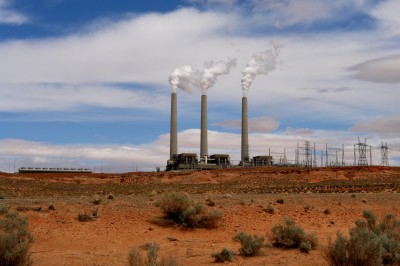Is EPA Delaying Clean Power Plan Rule to Modify the Proposed Rule for New Power Plants?
 EPA announced this week that it will delay issuing both its final Clean Power Plan for greenhouse gases emitted from existing power plants as well as proposed rules for new coal and natural gas fired plants. The agency said it needs the extra time to respond to the 4 million comments it received and to coordinate “a suite of rules that takes into account any and all of these cross-cutting issues.” Observers have speculated that one reason for the delay is to prevent Congress and legal opponents from taking political and legal action to overturn the rules until the rules are finalized.
EPA announced this week that it will delay issuing both its final Clean Power Plan for greenhouse gases emitted from existing power plants as well as proposed rules for new coal and natural gas fired plants. The agency said it needs the extra time to respond to the 4 million comments it received and to coordinate “a suite of rules that takes into account any and all of these cross-cutting issues.” Observers have speculated that one reason for the delay is to prevent Congress and legal opponents from taking political and legal action to overturn the rules until the rules are finalized.
Much of the focus is on the complex plan to reduce emissions from existing plants and EPA has made clear that part of its efforts will include drafting a model rule for states that don’t come up with their own plans. I wonder, though, whether another issue EPA may address is its standard for new coal-fired power plants. Here’s why.
Section 111 of the Clean Air Act provides the legal authority for EPA to issue rules to cut greenhouse gas emissions for both new and existing power plants. The proposed rule for existing power plants is where all the action is: about 40 percent of U.S. emissions come from the generation of electricity from these plants so if we can’t cut their emissions we can’t make serious progress in reducing our overall emissions. But EPA can’t issue rules for existing power plants unless it also has rule in place for new power plants. Section 111 deals primarily with new sources, establishes procedures for issuing standards for new sources, but then includes a provision, Section 111d, that directs the agency to issue “standards of performance” for existing sources if they aren’t covered by two other sections of the act and “to which a standard of performance under this section would apply if such existing source were a new source.” So in order to issue the Clean Power Plan for existing plants, EPA needs rules for new power plants.
EPA has proposed rules for new power plants, one for coal fired plants and one for natural gas plants. These rules are supposed to set standards of performance that achieve cuts in emissions based on “the best system of emission reduction which … the Administrator determines has been adequately demonstrated.” The proposed rule for coal-fired power plants is especially controversial: EPA set the rule at a level that would require any new coal-fired power plant to install carbon capture and sequestration technology. The potential legal problem with the rule is whether such technology is “adequately demonstrated:” to date, no power plant is operating with such technology and the two under construction (in Mississippi and Texas) are significantly over budget. To put it more plainly, is CCS an economical and available technology for new coal-fired power plants? If not EPA may be on shaky legal ground in setting its 111 standard based on the technology.
If EPA’s new power plant rule couldn’t survive legal challenge, the Clean Power Plan for existing plants — which, again, is the centerpiece of the U.S. climate strategy — likely wouldn’t survive because without a rule for new plants EPA can’t regulate existing ones. So it will be interesting to see if EPA, when it finalizes the new and existing rules, eases the rule for new coal plants. If it does so, the reasons will have much less to do with whether new power plants will have to adopt expensive CCS technology because we’re unlikely to build many (if any) new coal plants. Instead the reasons will be all about shoring up the legal basis for the rules for existing plants. That’s where all the action is but their legality depends on the rules for new plants.
Reader Comments
One Reply to “Is EPA Delaying Clean Power Plan Rule to Modify the Proposed Rule for New Power Plants?”
Comments are closed.





Dear Ann,
Surely you know by now that the new leadership in Congress intends to kill the Clean Power Plan rule entirely. The California Environmental Bar intentionally ignores the fact that CCS would have absolutely no impact at all on mitigating climate change and is a totally worthless waste of an enormous amount of public money. Most reasonable people understand this farce. EPA’s delay in implementing the Clean Power Plan is merely its first step in rescinding these rules altogether in order to preserve its funding.